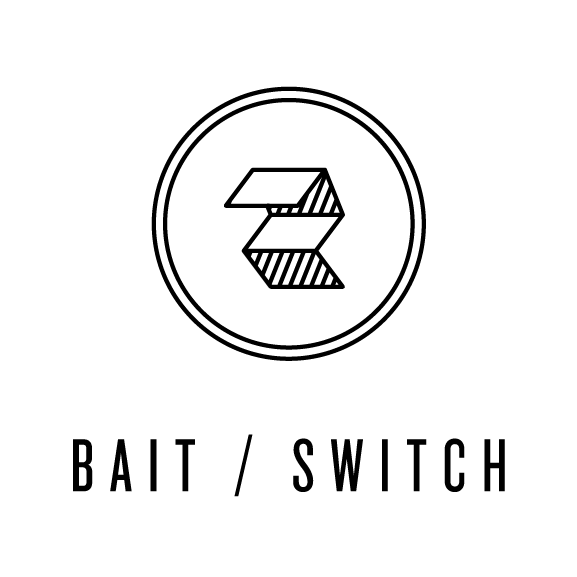Tash and Burn
Richard Tarantino
“Stay on top of your shit. That’s my advice.”
Interview by C. VanWinkle
November 11, 2021
Can you please begin by describing what you responded to?
I responded to visual work of art, a painting. I guess it’s a bit abstract, but what I derived from it, what I see in it is a duality, a bit of chaos and destruction, hopefully being overtaken with positive energy. That’s what I took from it.
Do you remember your first impression of it? What did you think when you saw it?
It made me think of duality. That word has been bouncing around in my head ever since I thought about it. Originally, it was the duality of everyday life. I know “mundane” sounds bad because it has a negative connotation, but it made me think of the good and the bad that exists in a single day. All the negative and positive stuff that you filter through, and you try to take that negative energy and filter it into a positive. That’s what I thought.
I see. In the painting, the two images that are easiest to identify are an hourglass and a hand holding an electric cord…
Yeah, searching for an outlet was the idea.
Do you think they found it?
Not yet. I think it’s a work in progress. It takes time, you know, it takes energy.
Your work recently has been heavily electronic, and then you happen to get this piece where there is something that is not plugged in. Was that something you tried to capture in your piece?
The piece is about searching. I assumed that the currently unplugged plug was searching for an outlet. That goes back into destruction and rebirth and hopefully finding a positive outlet for that thing, which is what we do on a daily basis. That’s what I feel that piece was representing and what I feel my music does. It’s just an eight-minute improvisation; it starts, it falls apart, it stops, starts again, it goes here, it goes there, it’s searching around for an outlet.
Okay, so you saw that in the painting. You had feelings about it. What happened next?
Well, I’d never worked with a visual motivation for music before. My motivation generally sprouts out of improvisation, just listening, playing with things until they resemble something I want to do or work with. I originally wondered how I was going to communicate something visual in the sonic realm, thinking specifically about modular synthesizers, Eurorack synthesizers, which I play. It’s a process of destroying and then being reborn again every time you set it up, because it’s an instrument that you can always set up differently. There isn’t one way of doing it. There are always different configurations. You’re constantly tearing things apart and putting them back together and hoping that you find something positive to spring out of that. So in that sense, just the act of performing on one of those instruments fulfilled that need that I felt to have some type of motivation. The visual motivation represents what I do on the machine, essentially.
Or the other way around.
Or vice versa. Yes yes yes yes.
Excellent. Let me see. How does this piece relate to the rest of your work?
It’s the first electronic piece of music I’ve recorded for release. Everything else I’ve done has just been little bits and pieces on Instagram. In my work as a whole, it represents my first electronic recorded piece of music. Secondarily, it represents where I am at the current stage, musically, on that instrument. I tried working with some new modules within my system. You know, I’m constantly carving out new little paths within it. I did try some new configurations of patches.
The painting prominently features an hourglass, which refers to time being limited. How are you with deadlines?
Not good. No. I recorded the piece, I believe, two nights after the deadline? You know, I had a plan. I had a rough guide as to what I wanted to do. It always changes as you’re doing it because you just get wrapped up in the moment, and where you were trying to go left, you ended up going right. And that’s fine. You just have to embrace the change. Because I stress out about things, I had probably three or four versions that I deleted and did again and again and again. My want of perfectionism makes it tough for me to beat deadlines when it comes to something artistic. That’s just something I’m working on, you know?
Yeah. And it’s something you’re pouring so much of yourself into, that of course you’re going to be picky.
It’s an emotional process. If I have a bad day at the synth, it affects the rest of my day.
Oh wow.
Yeah, it’s a bummer.
So people at work might know the difference when you’ve had a bad day?
“Tough synth morning,” they say. They actually say that.
“You know how he gets when it’s been a tough synth morning.”
“Couldn’t nail those scales this morning.”
Was the plan always to do something improvised?
Yeah, that’s all I ever do on those things. I generally have a little sketch. I’ll have a few patterns programmed in there. They change, and when and how I work with them generally changes every time I perform. Again, it’s destruction. The thing that I played for this I will never play again. It’s already gone. I could try and rewrite the thing, but I’m just not going to. That’s the one time that thing will be performed.
That’s the best part and the worst part about something improvised. It can’t really be duplicated.
No! You can work with the bones of it. You can work within the structure. But when I’m working with improvised music, I don’t even try to recapture that. I just use it as a road map and see where it takes me, you know? It’s a journey. It’s a journey, man. I remember in school, I had to transcribe a Miles Davis trumpet solo on upright bass for an end-of-semester project. It seemed like a very minimal, melodic piece, so it didn’t seem that hard on the face of it. But once you try and get someone’s time and feel – somebody like that is never playing right on the beat. You know, how do you get someone else’s feeling? How do you learn feeling? It’s almost impossible. So trying to learn something you did, feeling the way you were feeling at that time, it’s hard to reproduce that. It’s very difficult.
Do you like to collaborate?
I do. Yeah, I’m working on a few things with some other musicians locally. I have some performances coming up with other sythesists. I eventually want to start doing stuff with acoustic performers: piano, violin, strings, stuff like that. Collaborating’s fun. I am hoping to work with this local visual artist soon on some indoor events, with audio/visual projection that you can actually manipulate with the same control voltage sources that you use to manipulate music in the modular system. So they now have these devices that allow you to control both via a knob.
Live?
Yeah.
Cool!
Yeah. CV-controlled video. It’s pretty insane.
I’d be interested to see that. All right, do you have any advice for someone else who is approaching this project now that you’ve done it?
No matter how long they give you, start early. Don’t wait till the last few days because it’ll stress you out. It’s anxiety, it’s a ton of shit. You know, you end up getting caught up in your own world for few days, and before you can even start, you end up judging yourself, questioning all your decisions. Finally, it’s three days before the project’s due. “Oh now I can start.” Right? I’ve worked through the emotional work first, so now it’s time to actually get to creativity. I’ve watched some Lars von Trier movies and just had a good cry. And we’re ready.
[laughs]
Anyway, that’s about it. Stay on top of your shit. That’s my advice.
Call Number: C60VA | C61MU.taTa
Richard Tarantino is a musician based in Boston, MA.



